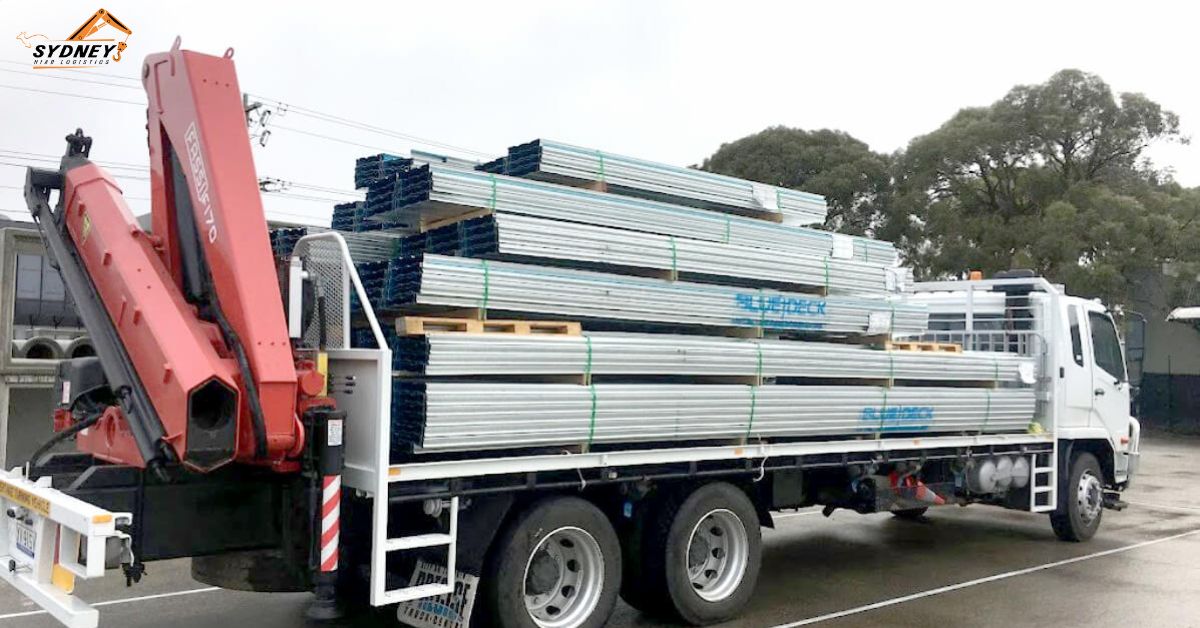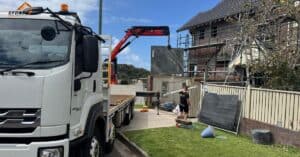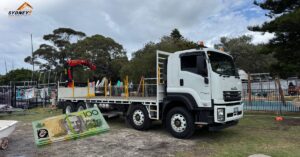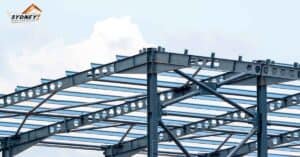Hiring crane truck in NSW can be a pivotal decision for various construction, logistics, and industrial projects. Whether you’re dealing with heavy lifting, moving materials, or transporting goods across difficult terrains, the right crane truck can make a huge difference in terms of efficiency, safety, and cost-effectiveness. However, the process of hiring a crane truck is more complex than just picking a provider. There are several factors you need to consider to ensure that you hire the best equipment for your needs.
In this detailed guide, we’ll explore everything you need to know when hiring crane truck in NSW. From understanding the different types of crane trucks to tips on ensuring compliance with safety regulations, we’ve got you covered.
1. Understanding the Different Types of Crane Trucks
Before you begin your search for a crane truck rental, it’s essential to understand the types of crane trucks available. There are several variations depending on the size, lifting capacity, and purpose.
a. Mobile Crane Trucks
Mobile crane trucks are one of the most common types available for hire. These trucks combine a crane with a flatbed truck, offering flexibility and mobility. They are perfect for situations where equipment needs to be transported and unloaded on-site.
b. All-Terrain Crane Trucks
As the name suggests, all-terrain cranes are designed to function on various types of terrain. They are capable of lifting heavy loads while remaining stable in uneven or rough conditions. All-terrain crane trucks are ideal for jobs that require mobility across different environments, such as construction sites or outdoor installations.
c. Truck-Mounted Crane
A truck-mounted crane is typically used for smaller jobs or when access to a job site is difficult. This type of crane is mounted on a truck chassis, which makes it more compact and easier to maneuver in tighter spaces.
d. Hiab Crane Trucks
Hiab crane trucks are equipped with a hydraulic crane that allows for precise handling and lifting of materials. They are commonly used for transporting goods like steel, machinery, or building materials, making them ideal for construction and logistics industries.
e. Flatbed Crane Trucks
Flatbed cranes are ideal for transporting goods over long distances. These trucks feature a flat platform that can be used to carry heavy or oversized loads, with a crane attached to assist in loading and unloading. They are commonly used in large-scale construction projects or for transporting heavy equipment.
2. Key Factors to Consider When Hiring a Crane Truck
Once you understand the different types of crane trucks, the next step is to assess the factors that influence your choice of a crane truck hire in NSW.
a. Lifting Capacity
One of the most important factors to consider when hiring a crane truck is the lifting capacity of the truck. This refers to how much weight the crane can safely lift and carry. Ensure the truck has enough lifting power to handle the materials or equipment you plan to move. Overloading a crane truck can lead to accidents, mechanical failure, and costly delays.
b. Reach and Height
Another key consideration is the crane’s reach and lifting height. If you are dealing with tall structures or need to access hard-to-reach areas, you need a crane with an extended boom or a telescopic feature. Ensure that the crane’s reach matches the requirements of your project.
c. Site Access and Terrain
Different crane trucks are suited for different terrain types. If your job site has rough or uneven terrain, you’ll need an all-terrain or mobile crane that can operate smoothly in such conditions. A flatbed crane might not be suitable for a hilly or rugged site, so always consider the site conditions when choosing a crane truck.
d. Crane Attachments and Features
Crane trucks come with different attachments and features that can make a difference in your project’s efficiency. Some trucks are equipped with additional features such as winches, forks, or spreaders to aid in specific tasks. Always check if the crane you hire has the necessary attachments for the job.
e. Safety Features
Safety is a critical concern when working with heavy machinery. Ensure that the crane truck you hire comes equipped with all necessary safety features such as outriggers, stabilisers, and emergency brakes. The crane should also be fitted with operational alarms, load charts, and safety locks.
f. Fuel Efficiency
Fuel efficiency is an important factor in the overall cost of hiring a crane truck. Crane trucks can consume a lot of fuel, especially during long or complex tasks. When selecting a crane, look into the fuel consumption rate and compare prices from different hire companies. A fuel-efficient model can save you significant costs in the long run.
3. Hire Company Reputation and Experience
When hiring crane truck, the reputation and experience of the hire company play a significant role in ensuring you get the right equipment for your project. A company with a long history and a solid reputation is likely to provide high-quality, well-maintained cranes, which can minimise downtime and reduce safety risks.
a. Check Company Reviews and References
Before finalising your hire, check reviews from other clients who have used the company’s services. Look for feedback regarding their reliability, the condition of their cranes, and the professionalism of their operators.
b. Insurance and Certification
Reputable crane hire companies should be fully insured, protecting you in the event of damage to the crane or injury to workers. Additionally, ensure the company complies with industry standards and holds the necessary certifications to operate cranes in NSW.
c. Operator Experience
It’s not enough to just hire a crane; you also need skilled operators to handle the machinery. Check whether the hire company provides experienced crane operators or if you need to provide your own. Operators should have appropriate certifications and training to ensure the crane is operated safely and efficiently.
4. Compliance with Local Regulations
In New South Wales, there are strict safety and operational regulations regarding the use of cranes. It’s important to ensure that both the crane hire company and the equipment comply with these regulations. Non-compliance can lead to penalties, accidents, or project delays.
a. NSW Work Health and Safety (WHS) Laws
Under NSW Work Health and Safety (WHS) laws, all construction and industrial equipment, including cranes, must meet certain safety standards. Ensure that the crane hire company you work with follows these regulations to guarantee safety on the job site.
b. Load Limitations and Operator Licensing
Operators of crane trucks must hold the necessary licenses, such as the high-risk work license, which qualifies them to operate specific types of cranes. Verify that the crane operators hired by the company hold the required certification, and that the crane’s load limits are displayed clearly.
c. Safety Inspections and Maintenance
Before hiring, confirm that the crane has undergone thorough safety inspections. A reliable hire company should have regular maintenance schedules to keep their cranes in optimal working condition. Regular checks should include hydraulic systems, cables, and structural integrity.
5. Cost Considerations
The cost of hiring a crane truck in NSW can vary widely depending on the size and type of crane, the duration of the hire, and the complexity of the job. To ensure that you stay within budget, it’s crucial to carefully consider the costs involved.
a. Daily vs. Hourly Rates
Most crane hire companies offer either daily or hourly rates. For short-term projects, hourly rates might be more economical, while long-term hires are often more cost-effective when priced daily. Be sure to discuss the most appropriate rate structure based on your project’s timeline.
b. Additional Costs
In addition to the base hire cost, there may be additional charges such as transportation fees, fuel surcharges, or operator fees. Always request a full breakdown of the costs upfront to avoid hidden charges down the line.
c. Get Multiple Quotes
To ensure you’re getting the best deal, request quotes from multiple crane hire companies. Compare prices, services offered, and the condition of the equipment to make an informed decision.
6. Planning for Project Delays and Setbacks
In the construction and logistics industries, unforeseen delays are common. Whether due to weather conditions, site access issues, or equipment breakdowns, it’s important to plan for potential setbacks.
a. Contingency Plans
When hiring a crane truck, always have a contingency plan in place. Factor in potential delays and ensure you have a backup crane option or operator ready if needed. This will help you maintain project timelines and minimise disruptions.
b. Timely Delivery and Pickup
Ensure that the crane truck arrives on time and is picked up promptly after the job is completed. Delays in the delivery or pickup can result in additional charges and setbacks to your project.
7. Environmental Impact
Crane trucks can have a significant environmental impact, especially in terms of fuel consumption and emissions. Consider opting for more eco-friendly options if available, or ensure that the crane you hire complies with local environmental regulations. Sustainable equipment can help reduce your project’s carbon footprint.
Conclusion
Hiring crane truck in NSW (New South Wales) requires careful planning, research, and understanding of your specific needs. By considering factors such as the type of crane truck, lifting capacity, site conditions, safety standards, and the reputation of the hire company, you can ensure that you make an informed choice. Always take the time to assess the total cost, legal requirements, and potential project risks before committing to a hire.
By following these guidelines, you can ensure that your project runs smoothly, safely, and cost-effectively while minimising the risk of unexpected issues. Whether you’re lifting heavy machinery, transporting building materials, or handling large-scale projects, hiring the right crane truck will set the foundation for your success.




